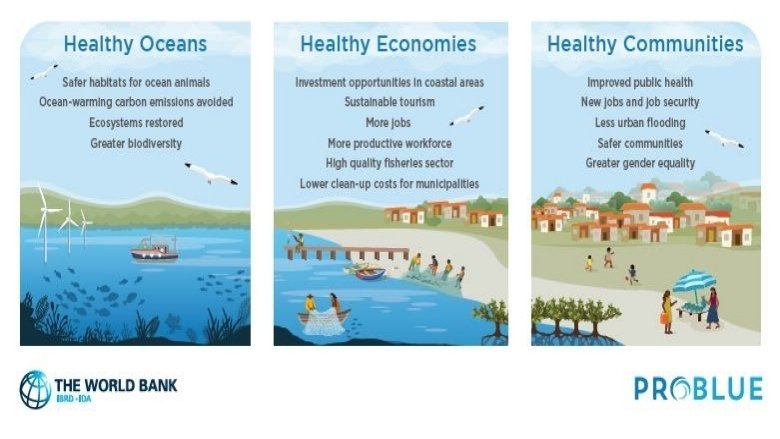Over 3 billion people rely on the ocean for jobs and food. These benefits are under threat due to a marine plastic crisis.
In 2016, 11 million metric tons of plastic flowed into the ocean. Without concerted efforts, this could triple to 29 million tons by 2040. The majority (70 to 80 percent) of this pollution is transported from land to sea via rivers or coastlines. The rest comes from fishing nets, lines, ropes, and abandoned vessels.
The consequences are far reaching. Plastic waste endangers marine life, damages marine ecosystems, and harms fisheries and tourism which provide jobs and drive economies.
Even though plastic is a valuable material due to its low cost and versatility, its overuse and mismanagement are clearly harming the planet. Tackling marine plastic pollution is the need of the hour.
Last Updated: Jul 11, 2025

















